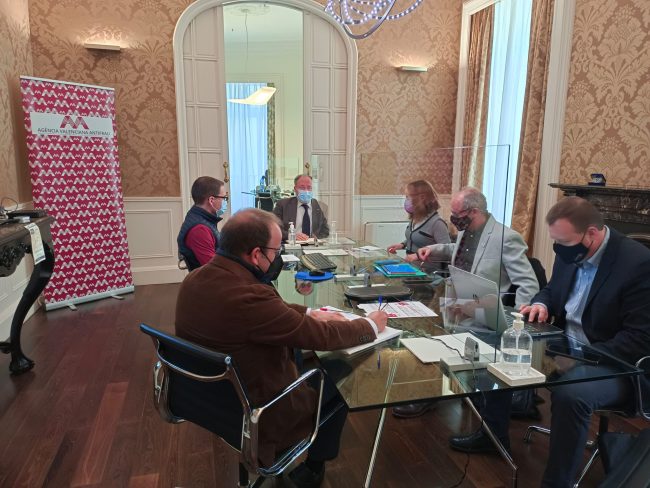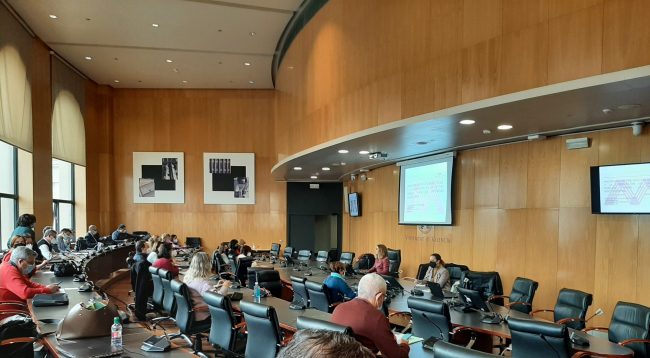Of the antifraud plans to integrity plans
The new legal framework for public integrity following the Whistleblowers Directive and Order HFP 1030/2021. The role of Anti-Fraud Agencies On September 29, the Ministry of Finance and Public Function approved Order 1030/2021 configuring the management of the Recovery, Transformation and Resilience Plan[1], PRTR in the future, with the aim that The Public Administrations adapt the management procedures and the control model in accordance with the standards required by the European Union both from the formal and operational point of view. and all this is limited exclusively to the management of European funds. According to the aforementioned Ministerial Order, the procedures to which it refers must contemplate the requirements established to achieve effective equality between men and women, territorial cohesion, respect for the environment, incentives for digitalization, the fight against fraud and corruption, and must be identified. the ultimate beneficiaries of the aid, as well as contractors and subcontractors. The Order itself thus recognizes that the requirements stated are not contemplated in the Spanish public administrations, immersed in their dynamics of “traditional management”, with the scope required by the European Union, and therefore must necessarily be introduced in order to achieve the objectives planned for the implementation of the funds from the NextGeneration Programme (EU).[2] In other words, and as far as the fight against fraud and corruption is concerned, the Order would say: That Spanish Public Administrations lack mechanisms comparable to the minimum standards required by the EU in the fight against fraud, corruption and conflicts of interest. That the area to which the aforementioned Order is addressed is exclusively to the management of the European funds of the PRTR. That the rest of the funds and especially the own funds whose origin is the taxes of all Spaniards, being outside the scope of the Order, do not interest anti-fraud plans and can continue to be managed in the “traditional” way. The Ministry of Finance and Public Function itself recognizes as true that the Spanish State lacks a global strategy to prevent and combat fraud and corruption and it is discouraging that this opportunity to extend anti-fraud plans to all public activity regardless of the origin of the public resources that are managed is missed. Moreover, the arrival of European funds and the demands for guarantees by the EU for an effective, efficient management free of fraud and corruption, would be a magnificent opportunity for Spain to approach European standards in terms of the fight for integrity and public ethics and good practices in our public sector. The Ministerial Order, despite being so unambitious, has raised surprises and controversies exacerbated by the very short period granted to the administrations to present their respective anti-fraud plans: 90 days that expire at the end of this month of January. Part of this period has elapsed with the recipients wondering what an anti-fraud plan is, how it is done and who executes it. For public administrations, the Order creates new functions that must be integrated into a terrible civil service context, of staff decimated by the limitations imposed by the postery budget laws to the great crisis of 2008 that over the years have created a great gap in the transmission of knowledge and in the generational renewal of the institutional human factor. In this context, any new burden without solving these shortcomings implies further straining public organizations that, lacking selection processes, renewal and training of career officials have had to resort to outsourcing or the figure of interims who have become precarious. especially the local, regional and to a lesser extent the state administrations. In this context, all those administrations or related public entities that are going to manage or execute PRTR funds must have, within the aforementioned period of 90 days, their corresponding Plan of anti-fraud measures that allows them to guarantee and declare that, in their respective field of action, the funds have been used in accordance with the applicable rules and in particular with regard to prevention, detection and correction of fraud, corruption and conflicts of interest. For the purposes of defining the concepts of fraud, corruption and conflict of interest, the Ministerial Order refers to the EU’s own rules and in particular to its Directive 2017/1371[3] which limits corruption to the conduct of bribery or bribery of officials in its broadest sense which includes the authorities themselves; fraud, referring to the conduct of deception and falsehood carried out by the beneficiaries of the funds in their justifications; and the conflict of interest to the existence of a particular interest that prevails and influences the general interest by diverting the action of officials and authorities from their public objectives. To these behaviors, we must add the others typified in our criminal code as crimes against the public administration, especially embezzlement, influence peddling, negotiations prohibited to officials or prevarication itself. The Order establishes a methodology based on a test model that starts with the declaration at the highest level of each public administration of its firm commitment to the fight against fraud and corruption; a self-assessment where the specific risks, their impact and probability of occurring in the key processes of the development and execution of the PRTR are identified. with a follow-up of periodic review; and a structure around four elements of the so-called anti-fraud cycle: prevention, detection, correction of irregular conduct, prosecution and recovery of improperly executed funds. Likewise, it is inferred, although partially, in principles and foundations that are typical of integrity plans such as transparency, the existence of a code of ethics and conduct for the entire organization; the provision of training on public ethics to its employees and authorities; and the existence of procedures to identify and resolve conflicts of interest. In this sense, the Valencian Anti-Fraud Agency has prepared, published and made available to all Public Administrations basic materials such as the “Guide to develop a Public Integrity Plan: Roadmap and Facilitating Annexes“[4] that together with previous works of the Agency such as “ Reflections on conflicts of interest: their ignorance, the…






